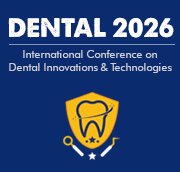Title : Beyond symptoms: Interdisciplinary, neurofunctional approach in orthodontic therapy – A case-based perspective
Abstract:
Orthodontic relapse remains a significant challenge in clinical practice, often linked to unresolved underlying functional disorders. Traditional symptom-oriented approaches frequently overlook the complex neurofunctional mechanisms contributing to long-term instability. This presentation proposes an interdisciplinary model rooted in the understanding of cortical representation, sensory integration, and neuromuscular re-education.
Orofacial functions such as breathing, sucking, and swallowing develop prenatally under brainstem control but are later integrated with higher cortical centers through sensory stimulation and motor activity. The cortical map—Penfield’s homunculus—allocates significant space to the orofacial region, which is sensitive to use-dependent plasticity. Dysfunctional breathing patterns, such as chronic oral respiration, may lead to cortical reorganization and suppression of nasal pathway representation, potentially explaining functional persistence despite anatomical correction.
Drawing on the philosophy of the Multifunctional System (MFS), we demonstrate how targeted sensory stimulation and interdisciplinary collaboration—including physiotherapy and speech-language pathology—can reactivate dormant neural pathways and achieve sustainable functional outcomes. Special emphasis is placed on re-establishing nasal breathing as a primary pathway, reprogramming tongue posture, and achieving neuromuscular balance via cranial nerve activation (V, VII, IX, X, XI).
The session will share preliminary results of our current observational study evaluating the impact of combined neurofunctional and orthodontic therapy on craniofacial growth, motor control, and postural integration. This approach, by addressing causes rather than symptoms, offers a promising paradigm shift for stable, holistic outcomes in orthodontics.
Keywords: Neuroplasticity, interdisciplinary therapy, cortical representation, nasal breathing, myofunctional therapy, MFS philosophy, sensory integration, relapse prevention.



